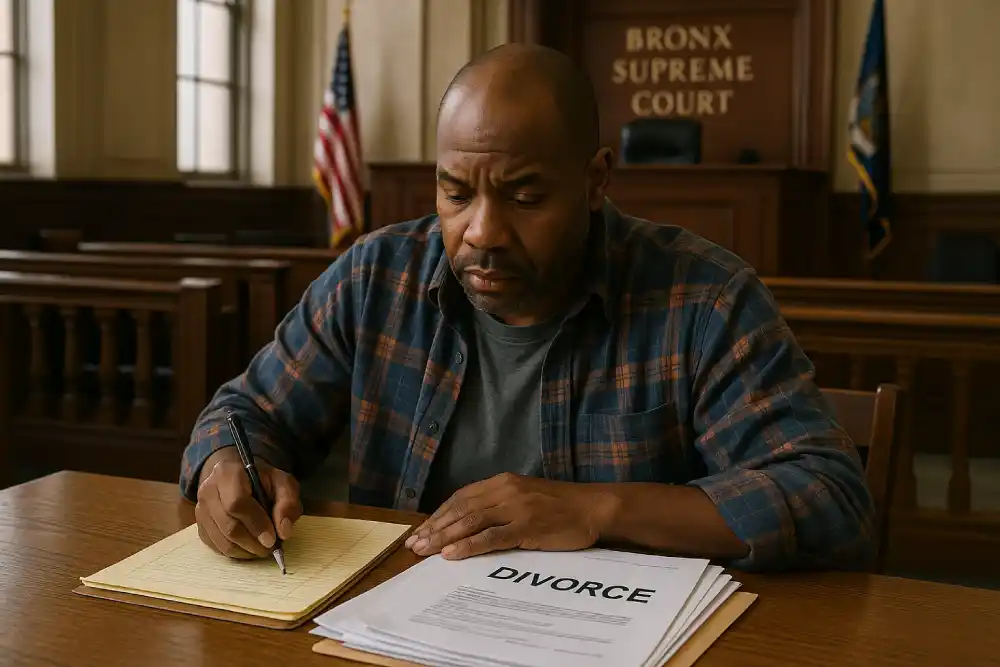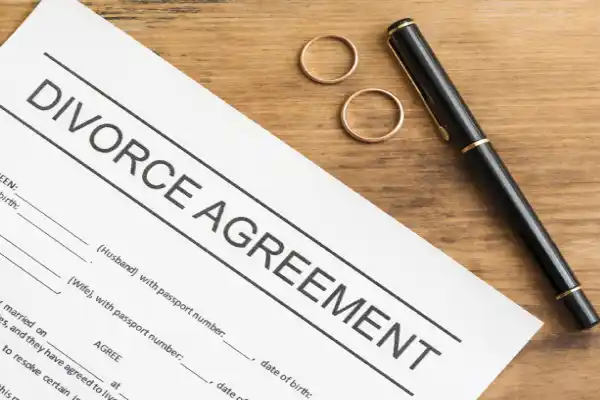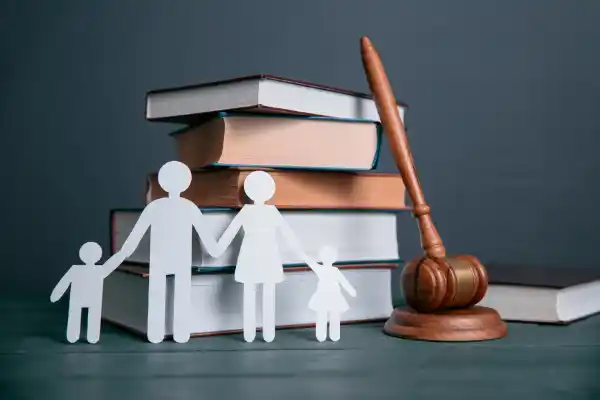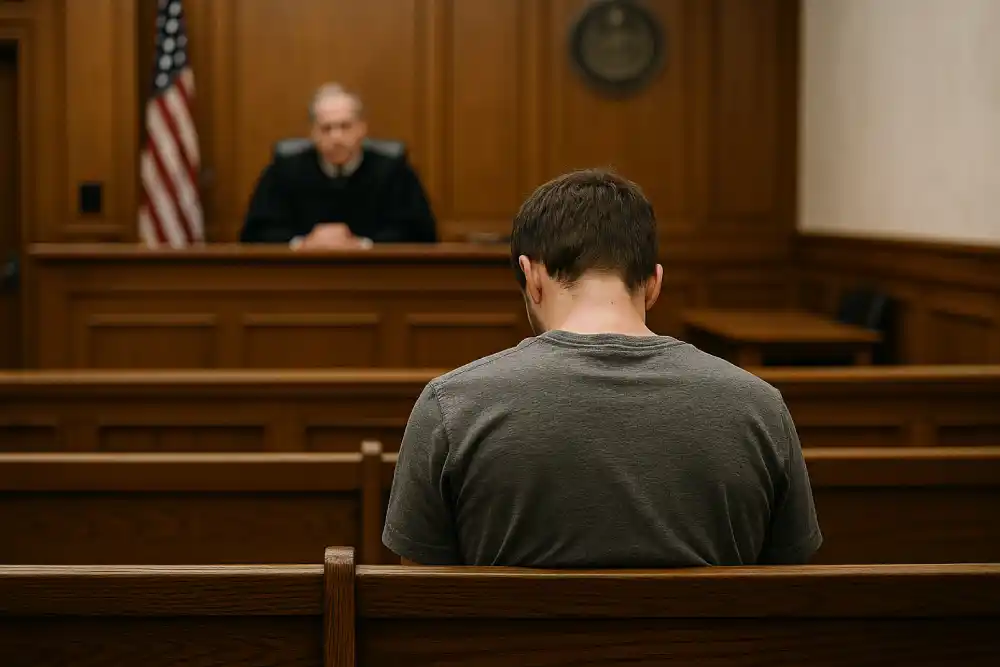By using our website, you agree to the use of cookies as described in our Cookie Policy
How Long Divorce Takes in the Bronx, NY
Divorce in the Bronx takes longer than most expect. The court is busy. Delays are common. Even if you’re ready to move on, the process rarely matches your timeline. Missed paperwork or a crowded docket can add weeks or months. If you want your case to move, you need to know what slows things down and how to avoid it.

What to Expect With Uncontested and Contested Divorce
Uncontested divorce sounds easy. Both sides agree. No one fights over property or custody. But even then, the process takes time. In the Bronx, most uncontested divorces wrap up in three to six months. That’s the best-case scenario. The court clerk reviews every document. One missing signature or a wrong date, and your file sits on a shelf for weeks. E-filing helps, but it only shaves off a couple of weeks at most.
Contested divorce is a different story. Arguments over money, property, or children slow everything down. Hearings get scheduled months apart. Lawyers file motions. The judge wants more information. Nine to twelve months is common, but some cases stretch much longer. The more you fight, the longer you wait. The court doesn’t rush. It moves at its own speed.
- Uncontested divorce: 3 to 6 months, if everything is in order
- Contested divorce: 9 to 12 months, often longer
- Default divorce (no response from spouse): 4 to 5 months
- E-filing: speeds up the start, but not the whole process
- Court backlog: adds 1 to 2 months, sometimes more
Working with our uncontested divorce attorneys who know the Bronx system keeps your case from stalling. We spot mistakes before the court does and push your paperwork through the right channels. That’s how you avoid the common traps that slow everyone else down.
Why the Bronx Court Moves Slowly
Bronx family court handles more cases than it can process. Judges rotate. Clerks get reassigned. Files get lost or buried. The system isn’t built for speed. Every day, new cases come in. Old cases linger. The court staff works hard, but the volume never lets up.
Paperwork mistakes cause the biggest delays. People forget to include financial statements. They miss deadlines. They file the wrong forms. The court sends everything back for corrections. Weeks pass before you even know there’s a problem. Then you fix it, resubmit, and wait again.
When children are involved, the timeline stretches. The court schedules mediation. Custody evaluations take time. Social workers get involved. The judge wants to see every detail before making a decision. No one rushes when kids are on the line. Expect extra months added to your case if custody or visitation is in dispute.
- Heavy caseloads slow everything down
- Staffing shortages mean fewer people to process files
- Paperwork errors send your case to the back of the line
- Child custody issues add mandatory steps and more waiting
When you need to resolve child custody, the court requires mediation and sometimes a full evaluation. These steps protect children, but they add months to the process. No shortcuts here.
Deadlines and Response Times
Once you serve divorce papers, the clock starts. Your spouse gets 20 to 30 days to answer, depending on how you served them. Missed deadlines don’t always end the case. Judges grant extensions. Sometimes, a spouse files late and the court accepts it. The process stops until everyone responds or the judge decides to move forward.
Default divorce happens when your spouse ignores the papers. The court waits, then reviews your request. Even then, you can’t count on a quick finish. The judge checks every detail. If anything is missing, you start over. Legal separation agreements or late responses can push your case back on the calendar. The court controls the pace, not you.
For those considering legal separation agreements, the court may allow more time for responses or negotiations. This flexibility helps some, but it rarely speeds things up.
Mediation and Its Real Impact
Mediation changes the game for many Bronx divorces. Instead of fighting in court, both sides sit down with a neutral third party. Property, finances, and custody get sorted out in private. The court still reviews the agreement, but you skip months of hearings and motions.
Mandatory mediation takes time at the start. But most people who use it finish their divorce 30 to 40 percent faster than those who fight every issue in court. The process is direct. You talk, negotiate, and sign. The court reviews the deal and moves your case forward. No endless waiting for a judge to rule on every detail.
For property division, mediation often means less stress and fewer delays. You control the outcome, not the court calendar. That’s a real advantage in the Bronx.
What Slows Down Divorce Most
Divorce in the Bronx stalls for a few simple reasons:
- Paperwork errors. One wrong form, and you wait weeks
- Missed deadlines. Your case gets pushed back
- Disagreements over money or kids. Every fight adds months
- Court backlog. Too many cases, not enough staff
- Waiting for responses. Spouses delay, judges allow it
People try to handle divorce alone and get stuck. They file the wrong documents. They don’t follow up. The court doesn’t call to remind you. Your case just sits. With the right legal help from Adon & Associates, you avoid these traps. Our team checks your paperwork, meets your deadlines, and keeps your case moving, even when the court is slow.
Get Professional Help With Your Bronx Divorce
Call Adon & Associates at 718-275-1243 or contact us to discuss your specific situation and get a clearer timeline for your divorce case.
‹ Back









